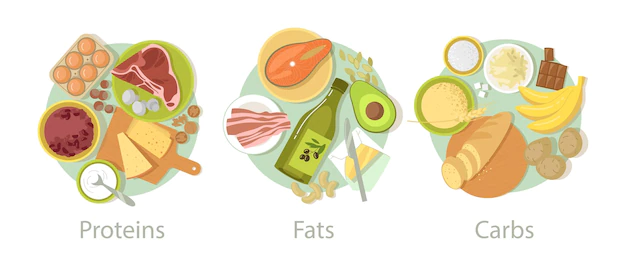
In today’s fast-paced world, where convenience often trumps nutrition, the importance of native foods in our diets is often overlooked. However, native foods are a rich source of nutrition, culture, and sustainability. In this article, we’ll delve into the significance of native foods nutrition, understanding what native foods are, their nutritional value, and the many benefits they offer.
Contents
- 1 Understanding Native Foods
- 2 The Nutritional Value of Native Foods
- 3 Benefits of Incorporating Native Foods in Your Diet
- 4 Challenges in Accessing Native Foods
- 5 Preparing Native Foods in Modern Kitchens
- 6 Recipes Using Native Foods
- 7 Native Foods in Different Cultures
- 8 The Role of Native Foods in Sustainable Agriculture
- 9 Native Foods and Biodiversity Conservation
- 10 Native Foods as a Source of Culinary Innovation
- 11 The Future of Native Foods
- 12 Expert Recommendations for Including Native Foods in Your Diet
- 13 Frequently Asked Questions about Native Foods
- 14 Conclusion
Understanding Native Foods
Native foods are the edible plants and animals that have been consumed by indigenous communities for centuries. These foods are deeply ingrained in the cultural and traditional practices of these communities. They include a wide variety of grains, vegetables, fruits, and even insects and game.
The Nutritional Value of Native Foods
One of the key reasons for the resurgence of interest in native foods is their exceptional nutritional value. Many native foods are packed with essential vitamins, minerals, and antioxidants. For example, quinoa, a staple of the Andean region, is a complete protein and a rich source of fiber, vitamins, and minerals. Similarly, the moringa plant, native to India, is known for its high nutrient content.
Benefits of Incorporating Native Foods in Your Diet
The benefits of including native foods in your diet are numerous. They are often more resilient to local climates, which makes them a sustainable choice. Moreover, native foods can provide a connection to local cultures and traditions, making meals not just about sustenance but also about heritage and identity.
Challenges in Accessing Native Foods
Despite their many advantages, accessing native foods can be a challenge for many. In some regions, they may not be readily available in local markets. Overcoming these barriers often requires increased awareness and support for native food producers.
Preparing Native Foods in Modern Kitchens
Incorporating native foods into your diet can be a rewarding culinary adventure. From traditional dishes to innovative recipes, there are countless ways to prepare native foods in modern kitchens. We’ll explore some mouthwatering recipes that highlight the unique flavors of these foods.
Recipes Using Native Foods
- H3: Quinoa Salad with Andean Flavors
- H3: Moringa and Coconut Smoothie
- H3: Sautéed Wild Greens
- H3: Native Berries Parfait
Native Foods in Different Cultures
Native foods are not limited to a single culture or region. They have a global presence and offer a rich tapestry of flavors and experiences. We’ll take a culinary journey to explore how different cultures embrace and utilize native foods in their cuisines.
The Role of Native Foods in Sustainable Agriculture
Native foods play a crucial role in sustainable agriculture. Their ability to thrive in local ecosystems reduces the need for extensive irrigation and chemical inputs. As such, they are essential in the quest for more sustainable and environmentally friendly food production.
Native Foods and Biodiversity Conservation
The cultivation and consumption of native foods can also aid in the conservation of biodiversity. By promoting the growth of native plant species, we can help protect local ecosystems and maintain a diverse range of flora and fauna.
Native Foods as a Source of Culinary Innovation
Native foods have the potential to revolutionize the culinary world. Chefs and food enthusiasts are increasingly experimenting with these unique ingredients, resulting in exciting new flavors and dishes.
The Future of Native Foods
The future of native foods looks promising. As more people become aware of their nutritional value and cultural significance, their popularity is on the rise. We’ll explore what the future holds for these traditional treasures.
Expert Recommendations for Including Native Foods in Your Diet
To help you get started on your journey to incorporating native foods into your diet, we’ve gathered expert recommendations and tips. These insights will guide you in making informed and delicious choices.
Frequently Asked Questions about Native Foods
- H3: What are some common examples of native foods?
- H3: Are native foods only for indigenous communities?
- H3: How can I find native foods in my region?
- H3: Can I grow native foods in my own garden?
- H3: Are there any health considerations when consuming native foods?
Conclusion
In conclusion, native foods offer a wealth of nutrition, culture, and sustainability. They are more than just ingredients; they are a connection to our heritage and the environment. Embrace the power of native foods in your diet, and you’ll embark on a culinary adventure that’s not only delicious but also meaningful.



